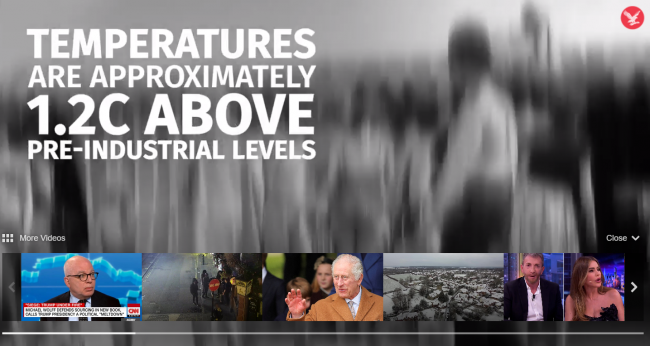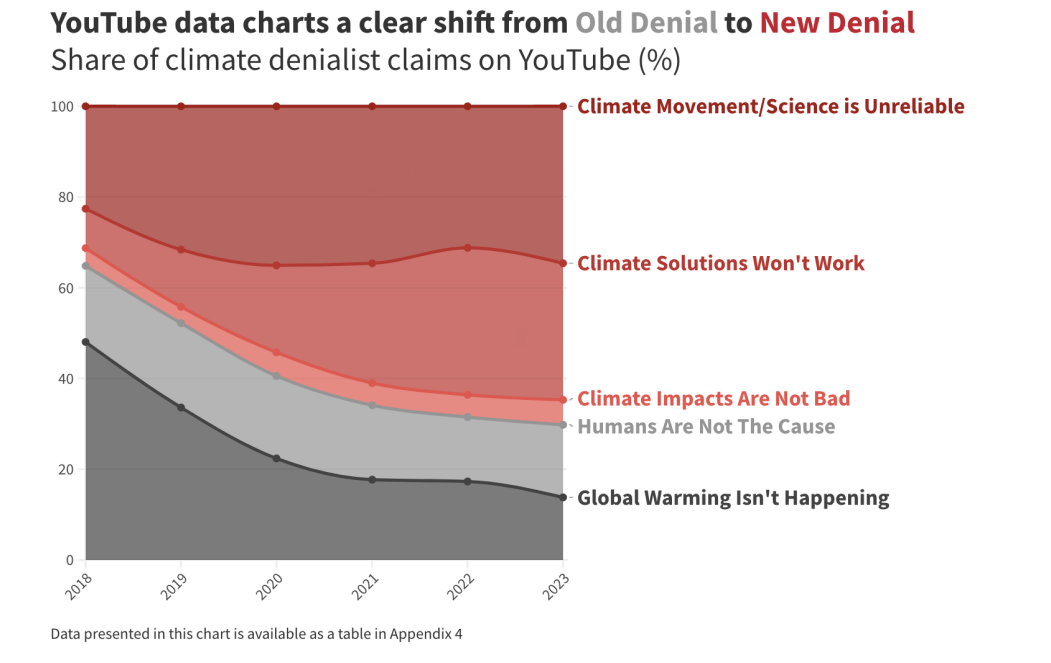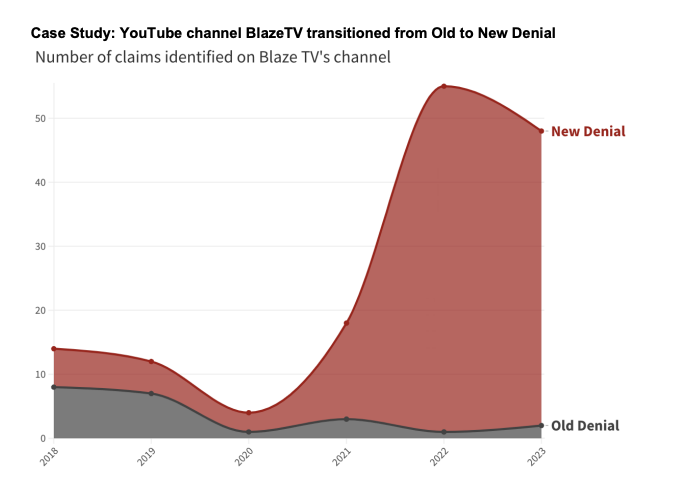Articles Menu

Jan. 16, 2024
Climate misinformation is rapidly mutating across social media, allowing nefarious actors to skirt restrictions and continue to profit, according to a new report.
With climate-driven disasters now impossible to ignore, outright denials of climate change no longer hold up with most people.
In the murky online realm of climate misinformation, a shift in tactics is in motion.
Researchers analysed thousands of hours of YouTube content from the past six years and found that “old” climate crisis denial – which claims that global heating is not happening and burning fossil fuels is not the cause – is giving way to a new type of misleading content intended to muddy the waters.
The report, by the non-profit research group Center for Countering Digital Hate (CCDH), found that this “New Denial” falls into a few broad groups: that the impacts of global heating are beneficial or harmless; that climate solutions won’t work; and that climate science and the climate movement can’t be trusted.
Climate scientist and author Michael Mann describes these new misinformation strategies as the “five Ds of inactivism: deflection, delay, division, despair and doomism”.
CCDH found that videos containing “New Denial” doubled since 2018 on YouTube. In total, there were more than 34,000 climate crisis denial claims on the 96 channels analysed, amounting to more than 325 million views.
The shift has been rapid and stark: as old climate denial narratives declined across YouTube, “New Denial” has surged. The latter now accounts for 70 per cent of climate misinformation on YouTube, while “Old Denial” has dropped to 30 per cent.
Imran Ahmed, CCDH’s chief executive, explained that social media platforms are helping content creators figure out what works and what doesn’t by providing rich data on how to get viewers, and rewarding them with money.

Mr Ahmed said that the new findings were somewhat optimistic because they showed that scientists and activists have been successful in conveying the facts of climate change to people, and what impact it is having on their lives. But he warned that the new research has uncovered a serious, rising threat.
“Climate advocates and policymakers must recognize this shift or risk losing the information battle necessary to deliver climate solutions,” the researchers wrote.
While the climate denial trends were evident across social media, the study focused on YouTube, which is owned by Google. The platform has a formidable presence as an information resource for billions of people, while at the same time being the “Bodleian of bulls***”, Mr Ahmed said.
Using an AI tool trained on climate denial claims, the study found:
In a statement to The Independent, a YouTube spokesperson said: “Our climate change policy prohibits ads from running on content that contradicts well-established scientific consensus around the existence and causes of climate change. Debate or discussions of climate change topics, including around public policy or research, is allowed.
“However, when content crosses the line to climate change denial, we stop showing ads on those videos. We also display information panels under relevant videos to provide additional information on climate change and context from third parties.”

The study analysed videos made by fossil fuel lobby groups, media companies, and individual pundits. One of those highlighted in the report is Jordan Peterson, a psychiatrist with 7.5 million YouTube subscribers. His channel typically takes the format of interviews with fellow climate change deniers, where posts have included titles such as “The Great Climate Con”, and “Killing the Poor to Save the Planet”, according to the CCDH report.
The Independent has contacted Dr Peterson for comment.
BlazeTV, founded by conservative firebrand Glenn Beck, regularly features climate change denial. The media company has also shared false claims about the 2020 presidential election, along with hosting Sandy Hook conspiracy theorist Alex Jones.
In a video published in July 2022 and watched 71,000 times, Mr Beck claims that the Biden administration is using the climate crisis as cover for government control, and a “great reset” – an online conspiracy theory that claims that a global elite is trying to dismantle capitalism and create a new social order.
“They don’t care about saving the planet, they know climate change is not going to kill millions around the world, this is all about gaining power and control over you... they are using this so-called emergency to justify a reset,” he said, on the video.
The Independent has contacted BlazeTV for comment.
The CCDH study found that in some cases,YouTube splits ad revenue with a channel, reportedly paying 55 per cent to the content creator, and retaining 45 per cent.
The ads served on “New Denial” videos featured major brands like Hilton Hotels, and global charities, Save The Children and the International Rescue Committee.
The CCDH called on YouTube and other social media platforms to update policies to keep up with new forms of climate crisis denial along with removing financial incentives, and reducing its reach and visibility.
“People have the right to post [this content] but do you reward them with money and give them a megaphone?” Mr Ahmed said.
He added: “We are not blaming Google for not recognising this, but we want them to make small changes to their policies. Don’t reward this content and profit from it.”